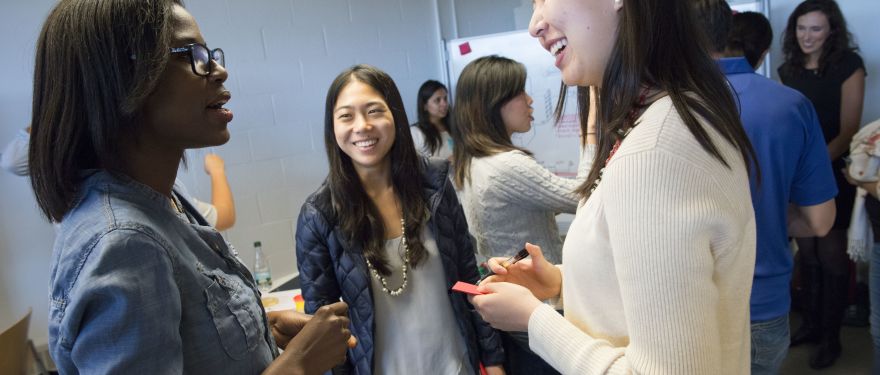The recruiting process among companies and candidates can resemble a two-way talent competition in which all parties serve simultaneously as contestants and judges: just as candidates strive to present themselves in the best possible light, companies eager to attract and retain the best talent want to assert their most attractive qualities to discriminating job seekers.
At Samsung, the manufacturing conglomerate headquartered in Korea, “Results speak for everything,” says Phoebe Hung (HBS MBA 2011), the company’s Senior Manager of Strategic Planning. “It’s a place where you can get things done.”
Similarly, Restaurant Brands International (RBI), home of Tim Hortons, Popeyes, and Burger King, “has a very meritocratic, performance-based culture,” says Naira Saeed (HBS MBA 2017), Tim Hortons’ Director of Operations for Central Ontario. “We have a bias to action – to grow, we need everyone to pull their weight.”
Although the idea of a culture may be easily expressed, its representation can cross challenging realties. Given an environment in which many corporations express the same values, it can be difficult to stand out with real conviction.
Samsung communicates its authenticity by drawing upon authentic communicators. “We encourage our interns to rate us on Glassdoor, good or bad,” says Hung. When the company conducts presentations for potential interns, “we always invite second year students to talk about their summer experiences with us: what they learned, what their fulltime opportunities might be.”
RBI amplifies its recruiting presentations by speaking from the top. “We’re probably one of the only companies of our size where the CEO participates in our presentations,” says Saeed. “It really signifies the importance of recruiting for our organization.”
Then RBI goes further to address candidate concerns beyond the initial job toward future opportunities. “Our culture is simple – we talk about being ‘owners’ here,” notes Camila Kataguiri (HBS MBA 2017), Popeyes’ Director of Digital Marketing. “But many companies say the same thing. We showcase journeys people can relate to and recognize, not just one, but several examples of MBAs at RBI, and how different each journey can be.”
Saeed speaks from her own experience. After just six months on the job, RBI asked her to participate in first-round interviews to share what she had accomplished in her first half-year. “The people we’re interviewing pick up on that. They see that someone who’s only been on staff for six months has already earned enough trust to assess recruits.”
Yet effective recruiting means not just attracting great talent, but appropriate talent. “We put a big focus on fit,” Saeed says. “Does this make sense for you? Does it make sense for us?”
“Ours is not a culture for everyone,” notes Kataguiri. “When we hire, we want to get the right people. We put so much effort into recruiting, we want people who can stay. It’s not an easy culture; we’re fast-paced and there’s not a lot of hand-holding. You need to be creative with limited resources. That’s why we’re more concerned with finding the right cultural fit than in focusing on skills and backgrounds.”
David Meckstroth (HBS MBA 2011), Samsung’s Marketing Director, emphasizes the significance of mutual honesty. “To recruit the right talent,” he believes, “you have to let them know what they’re really getting into. I look at it from their point of view: regardless of which team you’re joining, you want to go in with a clear understanding of what the company expects and what you yourself want.”







